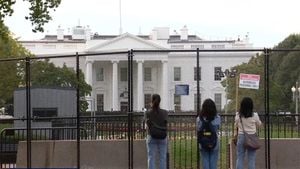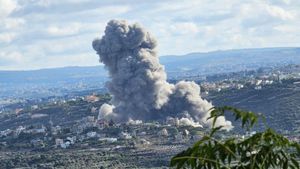Recent Israeli airstrikes have struck again, this time targeting the town of Barja in central Lebanon, resulting in devastating consequences. Rescue workers reported pulling 30 bodies from the rubble of a building destroyed during the night of November 6, 2024, as part of the continuing conflict between Israel and Hezbollah. The situation remains grim, with the search for survivors still underway and many families affected by this tragic event.
According to Lebanon's Civil Defense service, the airstrike occurred without warning, and the Israeli military has not provided details about the specific targets or any military objectives behind the attack. It’s widely noted, though, the escalation of conflicts between Israel and Hezbollah has reached alarming levels.
"Something pulled me hard, and then the explosion happened," said resident Moussa Zahran, who managed to rescue his wife and son from the rubble, both injured but alive. He described the chaos of the moment, emphasizing the horror of witnessing neighbors trapped under debris. Another resident, Muhyiddin Al-Qalaaji, lamented the tragic loss, stating, "There are many dead and injured,” highlighting the sense of despair permeated throughout the community.
This airstrike is just one of many following the wider conflict ignited on October 7, 2023, when Hamas militants launched attacks on southern Israel, killing approximately 1,200 people and abducting 250 others. This triggered Israel’s substantial military response, which has now claimed over 43,000 lives in Gaza, according to Palestinian health officials, approximately half of whom are said to be civilians, women, and children.
Meanwhile, skirmishes have continued along the Israeli-Lebanese border as Israel retaliated for Hezbollah’s rocket attacks. This latest airstrike on Barja came as part of continuous aerial bombardments initiated by Israel since mid-September. These attacks have increasingly expanded, with previous strikes reported near sensitive areas, including those close to Beirut’s southern suburbs and near the international airport.
On the day of the Barja strike, Israeli rockets were also fired resulting in casualties across northern Israel, including the death of a foreign worker due to similar rocket fire. Sirens were reportedly activated throughout the central regions of Israel, including major urban areas. Some rockets have even landed close to Israel’s main airport, sparking public fear yet flights were reported to be operating normally.
The recent conflict escalation has led to political turbulence within Israel, as Israeli Prime Minister Benjamin Netanyahu dismissed Defense Minister Yoav Gallant, reportedly due to disagreements over the military strategy against Hamas and the conduct of the war. Gallant had previously been viewed as more favorable to negotiating with Hamas for hostages’ release amid growing concerns among Israel’s populace over the war’s handling.
Netanyahu has since announced Foreign Minister Israel Katz as Gallant's replacement, tying the change to broader military tactics against both Hamas and Hezbollah. This move has provoked protests across the country, with many citizens dissatisfied with the political leadership amid the backdrop of the intensifying military operations. Protests erupted, with demonstrators blocking major highways and calling for accountability and changes in the government’s strategic direction.
Hezbollah, for its part, has retaliated significantly since the start of the current war, with rocket attacks killing at least 73 people, including soldiers within Israel. Since 2023, at least 3,000 individuals have died and roughly 13,500 have been injured within Lebanon, emphasizing the war's toll on both civilian and military populations.
This regional conflict appears far from resolution, as both military activity and political maneuvering paint an increasingly complicated picture of military engagement and civilian impact. Far-reaching diplomatic efforts seem stalled, with both sides prepared for continued hostilities as the humanitarian situation worsens on both sides of the border.
While residents of Barja dig through the rubble, hoping for more survivors, the international community watches and awaits broader signs of peace. For now, the dire realities of war are starkly felt, with each airstrike amplifying the call for actions to avert future tragedies.



